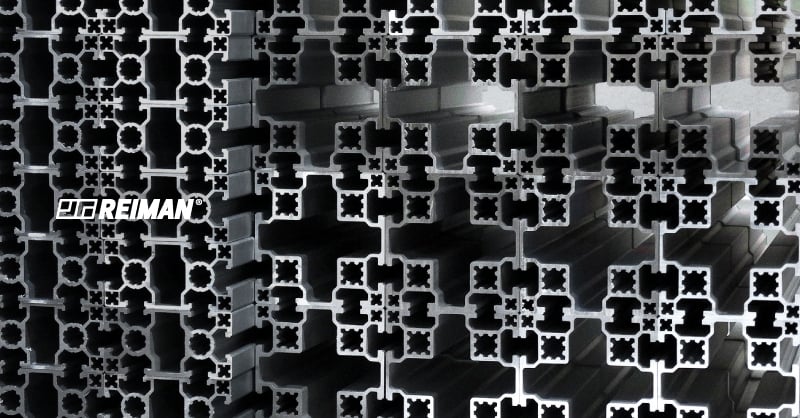How does Aluminium contribute to Sustainability?

Nowadays, sustainability is an essential topic and is increasingly being discussed in order to create a more equal, resilient and environmentally healthy future.
In industry, materials play a key role in the search of more environmentally friendly solutions.

Reiman distributesWolweisstechnical aluminium profiles that offer unique characteristics that make them essential components for boosting sustainability in various sectors.
Aluminium as a Sustainable Material:
Aluminium has intrinsic characteristics that make it a sustainable material. It is highly recyclable, allowing it to be reprocessed multiple times, which extends its lifecycle.
Aluminium is also resistant to the effects of oxidation and corrosion, even in harsh environments. Materials that corrode quickly can release toxic substances, causing pollution in the environment. Aluminium's corrosion resistance reduces the risk of environmental pollution associated with material degradation.

The technical aluminium profile is widely used in renewable energy systems. It is one of the best, most flexible, and cost-effective ways of creating photovoltaic structures. The weight of the structures is reduced, which means that the strength of the assemblies can be used focused on the application rather than the support.
It is also widely used in electric vehicle charging stations, energy storage systems, wind turbines and many others sustainable applications.
Wolweiss aluminum profile is a significant asset to industrial production, making it a popular choice across various industries and applications. This is due to features such as easy installation, flexibility and customization. It also comes in a wide range of sizes, shapes of colors.

Certifications and Sustainable Standards:
The aluminium industry is icreasingly seeking to comply with certifications and standards that meet sustainable measures.
These certifications not only guarantee the quality of the aluminium, but also demonstrate a commitment to contributing to a more ecological and socially responsible future.

